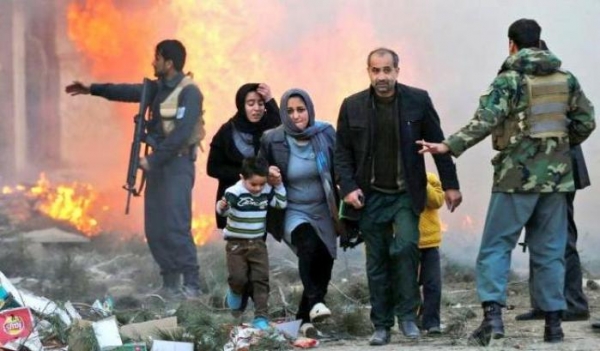As pointed out in the report drawn up by the UN Secretary-General (UNSG) on 17 June, «the security situation remained volatile and unpredictable» in Afghanistan, despite the signing of the Agreement for Bringing Peace between the United States and the Taliban on 29 February. This agreement provides for the reduction of the US military contingent to reach its withdrawal in 14 months and the Taliban to respect a permanent ceasefire together with their commitment to fight the local branch of the "Islamic State", the Islamic State in Khorasan Province (IS-K).
However, on 2 March the Taliban have announced the resumption of their military operations which, in addition to the relentless attacks conducted by other anti-government factions, further destabilised the country's precarious and fragile balance. Specifically, after having examined the February-May quarter, a report submitted by the United Nations Assistance Mission in Afghanistan (UNAMA), has recorded 5,543 security incidents, which has occurred mainly in the southern region and in the northern and eastern areas. During the reporting period, 18 attacks were attributed to IS-K, three of which hit the capital Kabul. The first has occurred on 6 March, during the commemorative ceremony of an important Afghan leader, and caused the death of 32 civilians; the second one on 25 March against a Sikh temple, claiming many casualties (25 deaths, many others wounded and 200 hostages); the third attack, on 12 May, has recorded 19 deaths and more than 60 wounded.
Therefore, the Afghan conflict is still «one of the deadliest in the world». UNAMA monitoring has painted a tragic humanitarian picture: from 1 January to 31 March 2020, 1,293 civilians were killed, 533 of them dead and 760 injured. Although a high proportion of the number of casualties - around 55% - is attributable to anti-government groups (Taliban and IS-K), Kabul's government forces are also responsible and accused of causing 32% of the total.
Yet, the ongoing conflict is not the only reason that is tearing Afghanistan apart. Natural disasters, high rates of poverty, food insecurity and COVID-19 have also brought further suffering and aggravated an already unsustainable situation. Since the end of February, more than 12,000 people have been homeless; between April and May about 13, 4 million people were living in a humanitarian food shortage emergency; by 21 May 8,676 Afghans had tested positive for COVID-19 and 193 had died. The pandemic, in addition to claiming victims, is also affecting women and girls who are forced to stay in homes, thus they are increasingly casualties of domestic violence and might see their hard-won freedoms reduced.
In the light of such a humanitarian situation, the UN Secretary General has expressed serious concern about the future of the country; therefore, he has called on the international community to continue its efforts to support the effective Humanitarian Response Plan and has reminded that «the constructive role of regional countries is vital to ensuring stability and economic development in Afghanistan and the broader neighbourhood». Then considering the spread of COVID-19, he has reiterated his call for the achievement and subsequent respect of an urgent ceasefire, as to allow humanitarian workers to intervene and carry out their work promptly. Only in this way, probably, might Afghanistan return to breathing and hoping for that peace which does not exist now.
To read more, please visit:
https://www.agi.it/estero/news/2020-05-17/afghanistan-accordo-ghani-abdullah-stop-a-faida-8643149/
https://formiche.net/2020/02/afghanistan-usa-talebani/
http://asianews.it/notizie-it/Kabul,-attacco-a-un-tempio-sikh:-11-morti-e-200-ostaggi-49649.html
https://www.medicisenzafrontiere.it/news-e-storie/news/kabul-sono-venuti-per-uccidere-le-madri/
Author: Antonella Palmiotti




